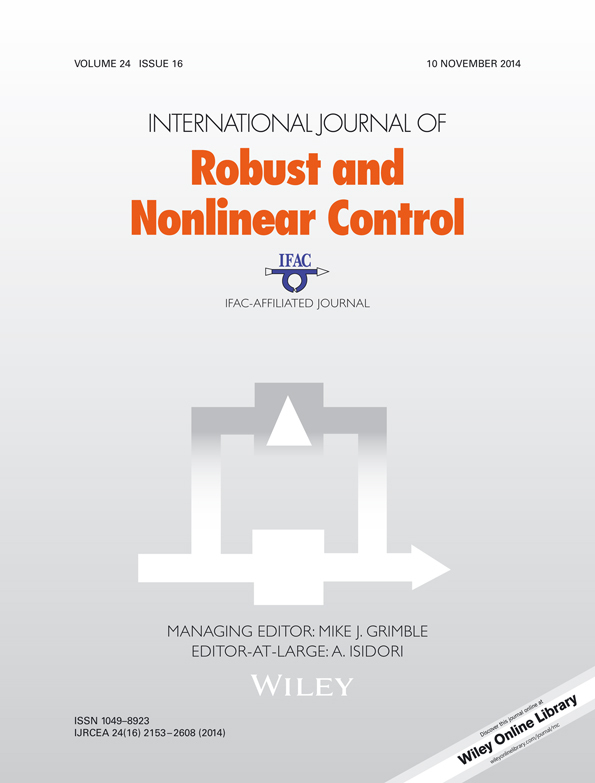Reliable decentralized stabilization via extended linear matrix inequalities and constrained dissipativity
SUMMARY
This paper considers the problem of reliable decentralized stabilization with multicontroller configurations when some of the controllers are faulty in the sense that they fail to act optimally or do not function in the way that they were originally intended to function. Specifically, we introduce a solution concept that requires controllers to respond optimally (i.e. in the sense of best-response correspondences) to the nonfaulty controllers regardless of the identity or actions of the faulty controllers. At any time, we assume that the nonfaulty controllers know only that there can be at most one faulty controller in the system, but they know neither the identity of the faulty controller nor how this faulty controller behaves. We present a design framework using an extended linear matrix inequality technique for deriving reliable stabilizing state-feedback gains; whereas a set of filters whose estimation-error dynamics satisfy certain quadratic integral constraints is used as decentralized observers within the subsystems for extending the result to the output-feedback case. Moreover, a sufficient condition for solvability of the problem is provided in terms of the minimum-phase condition of the subsystems. We also present an application of the results to a power system problem. Copyright © 2013 John Wiley & Sons, Ltd.




